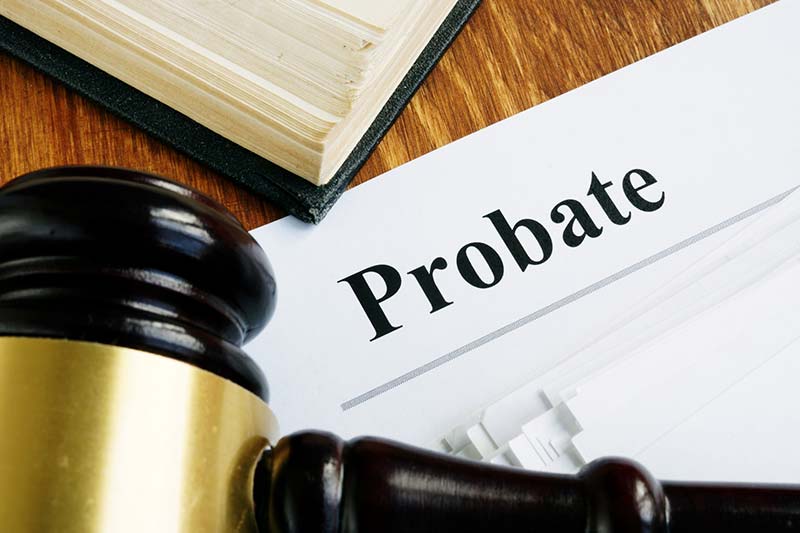When a Washington resident dies, their assets and debts must be divided and distributed. Probate is the orderly transfer of real and personal property of the deceased person, known as the decedent, to his or her beneficiaries and heirs. Working with an experienced probate attorney can provide peace of mind for your family during this difficult time.
You may not know where to start. In basic terms, if the decedent had a valid Will, the transfer follows the terms of the Will. If the decedent did not have a Will, the estate is considered intestate and the property is distributed according to the Washington State intestate succession laws.
Which Assets Go Through Probate?
All property, whether real estate or personal belongings mentioned in a Will go through probate. If an asset transfers directly to the beneficiary upon the decedent’s death, it is considered a “non-probate asset.” Non-probate assets include:
- property that passes through joint tenancy or right of survivorship
- joint bank accounts with right of survivorship
- Transfer on Death (TOD) Deeds
- Payable on Death (POD) bank accounts
- Transfer on Death (TOD) security accounts
- certain trust property
- community property agreements,
- individual retirement accounts or bonds
- contracts with payment or performance terms that are controlled by the death of the signer
Who is Responsible to Transfer the Property?
The probate court will appoint a Personal Representative to administer the decedent’s estate and ensure the estate assets are distributed or transferred to the appropriate beneficiaries and heirs. To appoint the Personal Representative, the judge will determine if the decedent had a valid Will.
If the Decedent had a Will
The court will review the Probate Petition, Original Will, and a certified copy of a Death Certificate. If the Will:
- names the petitioner (the person filing the probate petition) as Personal Representative, and
- is “self-proving” (most Wills are self-proving), and
- has provisions for “non-intervention powers,” and
- waives the requirement for a bond
the court will appoint the petitioner as Personal Representative and direct the Court Clerk to issue Letters Testamentary as proof of the appointment.
Without a Will
The court will review the Probate Petition and a certified copy of a Death Certificate. If the petitioner is:
- the surviving spouse or state-registered domestic partner, or a person the spouse or partner has suggested, or
- the next of kin in the following order:
- Child or children;
- father or mother;
- brothers or sisters;
- grandchildren;
- nephews or nieces
and the petitioner is asking to be appointed as Personal Representative of the estate, the court will direct the Court Clerk to issues Letters of Administration to the appointed Personal Representative.
What are the Duties of a Personal Representative?
The Personal Representative settles the estate, including the administration of any non-probate assets within their control as quickly as possible, without sacrificing the estate. The Personal Representative also collects all debts owed to the decedent and pays all debts owed by the decedent according to law. The Personal Representative is authorized to manage and settle the estate, including recovering any property, real or personal. Specific Personal Representative duties include:
- collecting debts of the estate
- paying valid debts of the estate
- prosecuting actions necessary to manage and settle the estate
- preparing an inventory and appraisement according to Washington law
- taking all actions reasonably necessary to preserve the estate assets during administration, and distributing the estate to those entitled to receive it.
Additional Nonintervention Powers of Personal Representative
Additionally, the court may grant a Personal Representative the following nonintervention powers to:
- borrow money on the general credit of the estate
- mortgage or encumber the assets of the estate
- lease, sell or exchange the assets of the estate
- convey the assets of the estate, and
- take any action that a trustee may take under Washington law.
Finalizing the Estate
To close an estate, the Personal Representative shall:
- Transfer title of the assets or pay the beneficiaries according to the Will or the laws of intestacy;
- Get receipts and waivers from those who are receiving an asset;
- Get Closing Letters from the IRS and Department of Revenue for any estate taxes paid (this applies to high-value estates only); and
- Prepare and file a Declaration of Completion in the probate court.
Once the Personal Representative has fully administered and settled the estate he or she must mail a copy of the filed Declaration of Completion to all heirs of the estate. If an heir doesn’t agree with the Declaration, he or she must file an objection within 30 days.
Do Small Estates Have to Go Through the Probate Process?
If an estate has personal property valued at less than $100,000 it does not have to go through the formal Probate court procedure. Instead, a person claiming to be an heir or beneficiary of the decedent can prepare a Small Estate Affidavit to claim personal property from the estate.
The heir or beneficiary must present a certified copy of a death certificate and the Small Estate Affidavit after 40 days from the date of the decedent’s death to whoever owes money to the estate or is holding personal property belonging to the decedent to request payment of the debt or transfer of the property.
What To Do Next
If you have recently lost a loved one and don’t know what to do, you need an experienced probate attorney to guide you through this difficult time. Attorney Gregory L. Davies has decades of experience as a well-respected probate attorney who understands your grief and can walk you through the probate process.
Call Davies Law at (425) 259-2755 or complete our simple form to set up a free initial consultation to discuss your loved one’s estate and how we can help you honor their final wishes. We also offer virtual meetings if you prefer.

